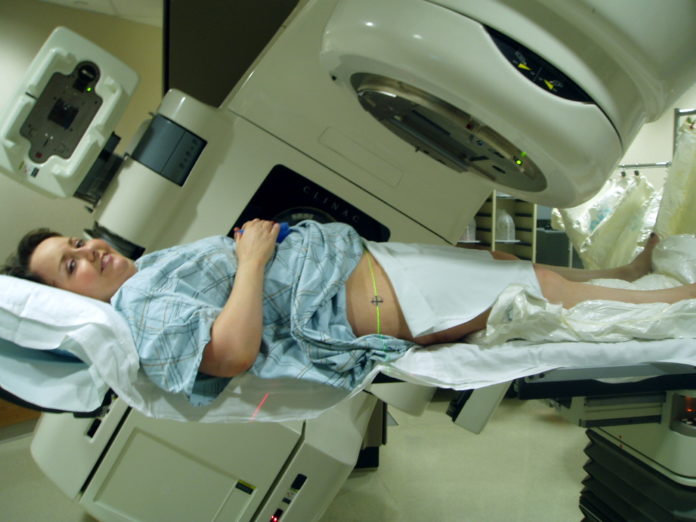For women with early breast cancer, the shorter version is as effective as traditional radiotherapy lasting 3-6 weeks
Targetted radiotherapy lasting a week is as effective in early breast cancer as the more traditional longer duration radiotherapy.
The results of a comparison of the shorter version – called accelerated partial breast irradiation – with conventional radiotherapy was presented at ESTRO 37. It has also been published in The Lancet Oncology.
Researchers say the targeted treatment, which takes a week, is a good option for women with early breast cancer. For many of them, the three to six-week schedule of traditional radiotherapy is a struggle
The treatment uses small tubes to deliver a higher dose of radiotherapy directly to the site of the tumour. Previous research shows that it is just as effective at treating early stage breast cancer as radiotherapy to the whole of the breast. Researchers say the targeted treatment, which takes a week, is a good option for women with early breast cancer. For many of them, the three to six-week schedule of traditional radiotherapy is a struggle.
The analysis of quality of life data was led by Dr Rebekka Schäfer, a clinician in the department of radiation oncology at University Hospital Würzburg, Germany. It involved more than 600 women treated at 16 hospitals across Europe who all had surgery to remove an early stage tumour.
Around half of the women received whole breast radiotherapy while the other half received the accelerated partial breast irradiation treatment. The research was part of a larger study that has already shown that the treatments are equally good in terms of survival and preventing cancer recurring in the breast.
Dr Schäfer said: “This treatment focuses only on the area of the breast where the tumour has been removed and so it offers a number of advantages. It allows us to deliver a higher dose of radiation to a smaller area, which means the course of treatment is shortened from three to six weeks down to one week or less. It also makes it easier to avoid unnecessary radiation to other parts of the body, such as the heart and lungs.”
She added: “However, compared to external radiotherapy this is a more invasive treatment, so we wanted to see how it affected women’s quality of life and their symptoms, both when they are treated and in the longer term.” Researchers questioned women about their symptoms and quality of life before and after their radiotherapy treatments. This was followed up at regular intervals for up to five years following treatment.
They found that women’s quality of life was equally good in both groups and remained so over the five years.
Symptoms of breast swelling and pain, and skin problems of the breast were worse in women treated with whole breast radiotherapy. Swelling and discomfort in the arm was also somewhat worse in the women given standard treatment.
Dr Schäfer added: “More and more women are surviving breast cancer for longer and longer, so we need to be sure that treatments do not detract from their quality of life in the long term. Research like this is vital because it allows us to offer treatment choices. For a variety of reasons patients may find it difficult to manage a treatment schedule that lasts up to six weeks. They may have to travel a long way to reach hospital, or they may wish to return to work as soon as possible, so they might prefer a treatment that can be carried out in a week or less.”
The researchers plan a ten-year follow-up of women in the trial to see if quality of life remains good and to see if there is any difference in cancer recurrence between the two treatments.


